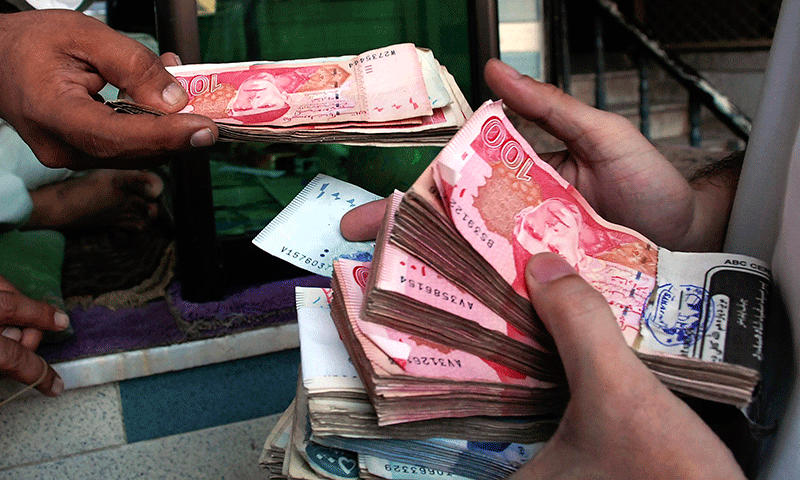Fiscal imbalance is shortening boom, bust cycle

The boom-and-bust cycle – the alternating phases of economic growth and subsequent decline – is becoming increasingly frequent.
With the latest $3 billion Stand-By Arrangement (SBA), analysts expect a longer-term Extended Fund Facility (EFF) for a larger amount to follow — indicating that the gap between growth spurts and a subsequent blowup has narrowed from three years to less than a year.
“It may go down to six months,” said economic expert Ammar H. Khan during a policy roundtable titled “Sovereign default: averted or delayed? An advisory services firm and think tank based in Islamabad, Tabadlab, organized the event on Thursday.
According to Khan, Pakistan is in a debt trap because it has to borrow money to pay off its existing loans. He explained that interest expenses, which represent the markup we pay on both local and international debts, account for 77 percent of all taxes collected.
The government has little fiscal room to spend on development and social services when it pays over three-fourths of its total tax revenues on debt servicing.
Moreover, in the last 10 years, expenditure growth outpaced revenue growth by 1.3 times. A 10 percent increase in tax revenue would result in a 25-30 percent increase in expenditures.
There is a chronic and systemic fiscal imbalance as a result of the ever-widening revenue and spending gap. Consequently, interest expenses account for over three-quarters of total taxes now, up from 50pc four years ago.
It doesn’t help that the latest fiscal blow-up coincides with an increase in interest rates. It was “fairly easy” to get dollar-denominated loans at near-zero interest rates until recently. The cheapest loans now attract a 5 percent rate – a move that has thrown Islamabad’s fiscal train off track.
There has been an increase of more than four times in the markup on foreign debt. The share of interest expenses in total taxes will rise to 85-90% as interest rates on both local and foreign debt rise, he predicted.
According to InfraZamin Pakistan CEO Maheen Rahman, the debt share in GDP is less than 100 percent, a manageable level. But the real problem is the lack of tax revenue generated by the economy. By increasing the tax base and attracting foreign investment, the country can alleviate pressures caused by debt, she said.
Concerning the calls for debt restructuring and relief, she noted that almost half of the foreign loans are already long-term and low-priced. Chinese commercial loans are problematic due to their short tenors and relatively high interest rates. She stressed, however, that any debt restructuring or relief must be preceded by a concerted effort to fix the tax system at home.
Dr Aliya Khan and business journalist Khurram Husain spoke at the event as well.
